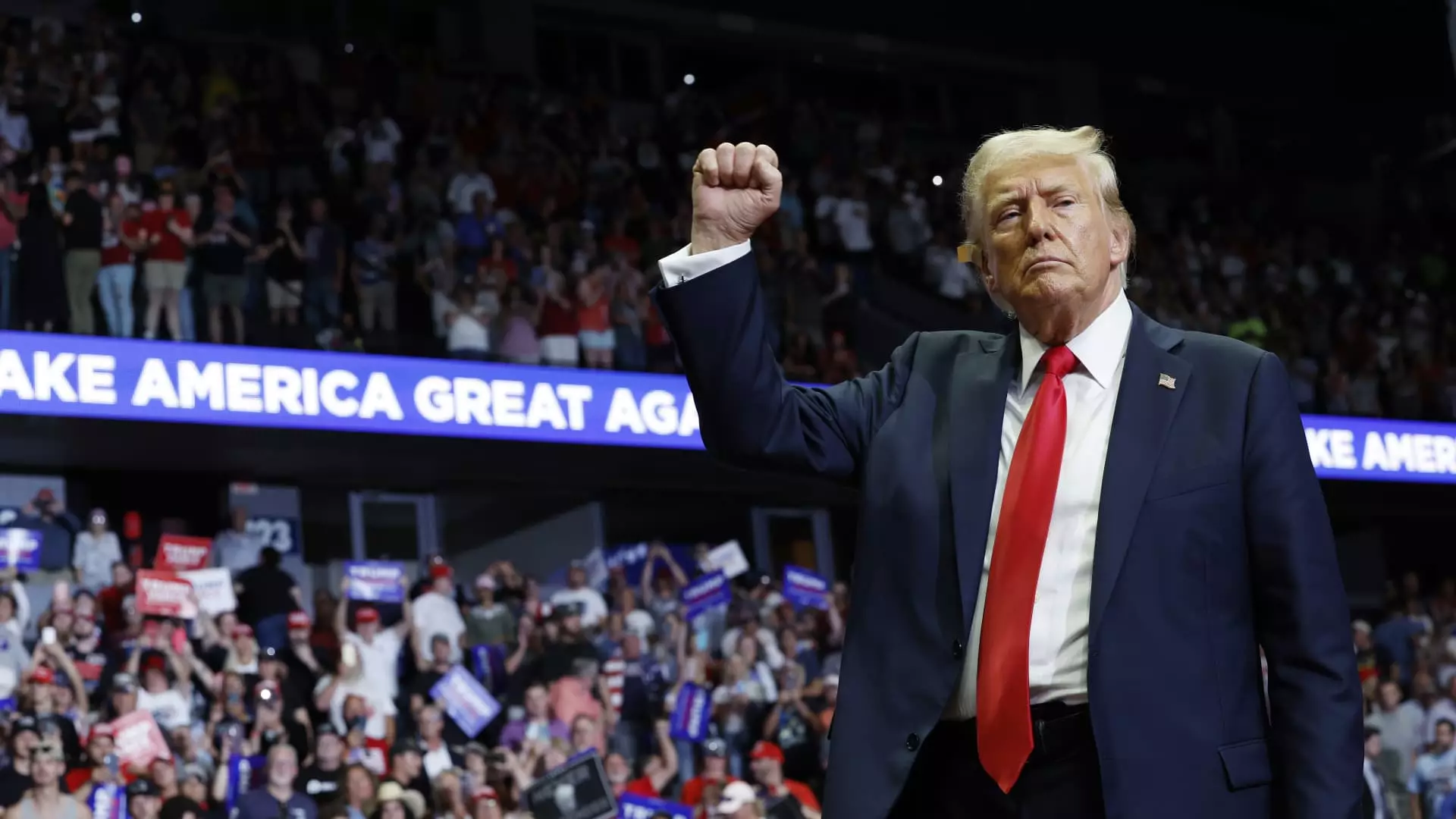Former President Donald Trump’s appearance as the main speaker at the biggest bitcoin conference in Nashville marks a significant shift in his stance towards cryptocurrencies. After previously dismissing bitcoin as a “scam” and expressing his preference for the dollar as the global currency, Trump is now actively engaging with the crypto community. This change in attitude is evident in his acceptance of campaign donations in virtual tokens, his promise to end President Joe Biden’s perceived “war on crypto,” and his advocacy for American-made bitcoin.
The Republican Party, closely aligned with Trump’s views, is now positioning itself as a supporter of the crypto industry. As the party pledges to reduce regulatory barriers imposed by the Biden administration, it aims to leverage crypto regulation as a key voting issue in the upcoming presidential election. With inflation concerns weighing heavily on voters’ minds, the Republican Party’s pro-crypto stance attracts support from influential figures in the tech and venture capital sectors.
Amidst the Republican Party’s increasing alignment with crypto interests, questions arise regarding the Democratic Party’s position on cryptocurrency regulation. Vice President Kamala Harris, who has shown interest in the crypto space, faces scrutiny over her potential policies if elected president. The Democrats must address the growing influence of crypto lobbyists in Washington and decide whether to adopt a more accommodating approach towards cryptocurrencies.
The influx of financial support from prominent figures in the crypto industry underscores the sector’s rising political influence. Trump’s campaign has received substantial contributions in cryptocurrencies, with notable investors like the Winklevoss twins and venture capitalists like Marc Andreessen and Ben Horowitz backing his candidacy. The involvement of tech elite members in pro-crypto super PACs indicates a concerted effort to elect candidates supportive of cryptocurrency on both sides of the political spectrum. However, the Democratic Party is also seeking to secure support from undecided donors in the tech community, leveraging Vice President Harris’s connections and fundraising history in California.
The convergence of cryptocurrency and political fundraising highlights a paradigm shift in campaign financing. As digital assets gain traction as viable contributions to political campaigns, candidates across party lines must adapt to this evolving landscape. With crypto billionaires and venture capitalists playing a significant role in funding political activities, the traditional mechanisms of campaign financing face disruption. The intersection of technology, finance, and politics underscores the need for policymakers to navigate the implications of cryptocurrencies on governance and electoral processes.
The intersection of cryptocurrency and politics in America reflects a broader shift in power dynamics and fundraising strategies. Trump’s embrace of bitcoin, coupled with the Republican Party’s pro-crypto stance, presents a formidable challenge to traditional political norms. As influential figures in the tech and venture capital sectors throw their weight behind cryptocurrency-friendly candidates, the political landscape is ripe for transformation. The debate over crypto regulation, campaign finance, and the broader implications of digital assets in governance underscores the need for a nuanced understanding of technology’s impact on democracy.


Leave a Reply
You must be logged in to post a comment.